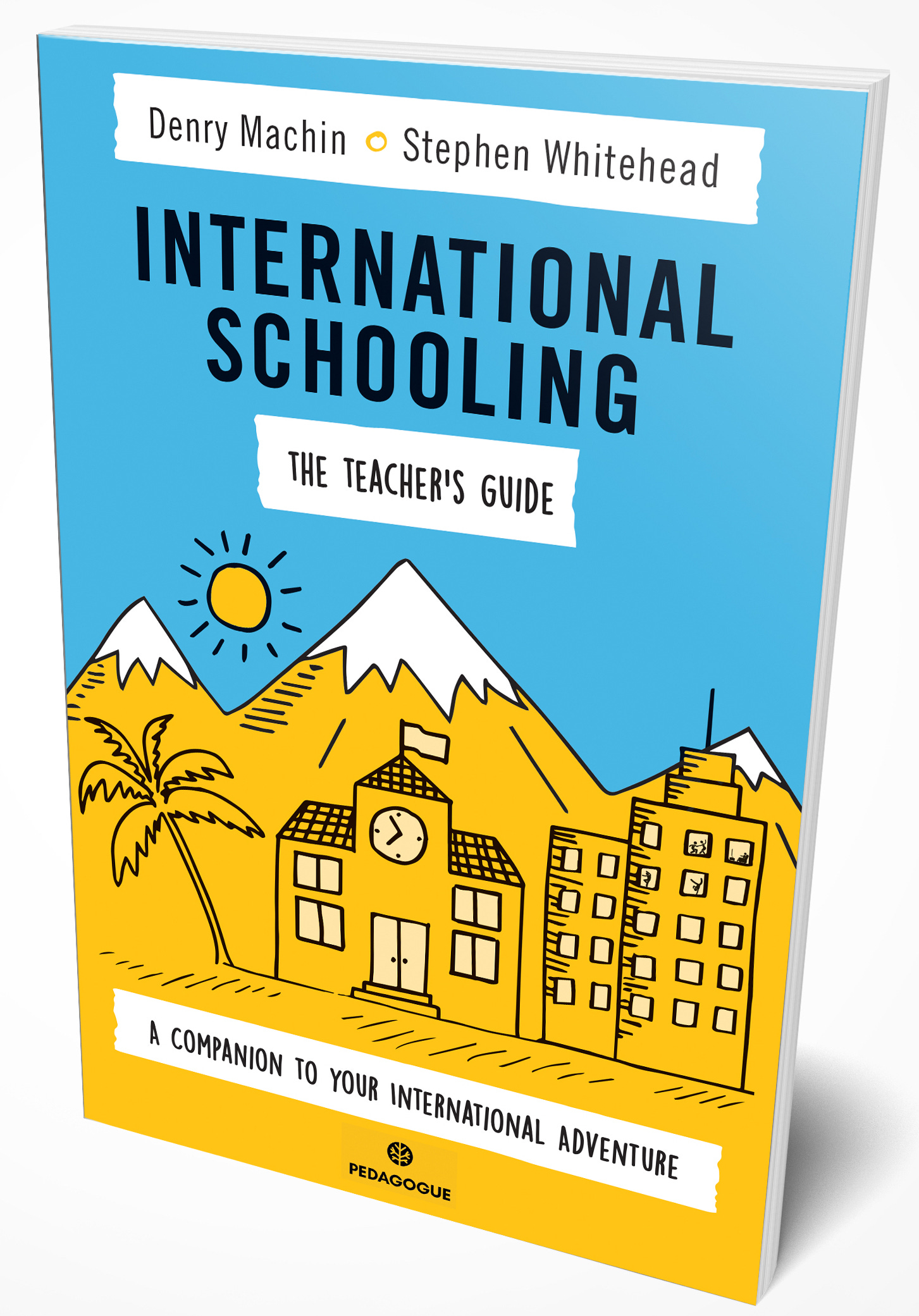EDDi Extra
International Schooling: The Teacher's Guide
Dear subscribers
It’s been a while since our last ‘EDDi Extra’.
Whilst here at EDDi HQ we are not ones for shopping and sales, Amazon have surprised us with a discount on International Schooling: The Teacher’s Guide. So, not wanting you to miss out, we’ve brought forward the second instalment of the book summary; this time covering Section 2:
Is International Schooling For You? And Are You The Right Fit?
The discount is on the paperback via Amazon (UK). We are not sure why 18% , but it’s reduced by 18% - which saves you about the price of a coffee and makes the book’s 402 pages even better value at just over £10.
For non-UK readers, check out your country’s Amazon site for local discounts. The book is also now available via Barnes & Noble (other platforms coming soon).
Next Friday will be the usual ‘full’ EDDi. We have a great piece on ‘teacher types’ for you to look forward to, plus our usual academic digests and Section 3 of International Schooling: The Teacher’s Guide.
Happy reading.
EDDi
IS INTERNATIONAL SCHOOLING FOR YOU? AND, ARE YOU THE RIGHT FIT?
OVERVIEW
Conjure the image of an international schoolteacher’s lifestyle. What comes to mind?
Perhaps the scene is one of palm-fringed beaches, lazy days and long sunsets; perhaps it’s of roof-top cocktails, gazing at the bright lights of a big city. Perhaps the image is of faded colonial architecture, of glittering Asian temples, or snow-capped peaks.
In all of these images, there is truth.
International schools are found the world over, from Australia to Oman, St Lucia to Switzerland and in cities from Bogotá to Bangkok.
International Schooling: The Teacher’s Guide examines how you too can enjoy the international lifestyle - or, for those already living it, how to make the most of your adventure.
Of course, you are going to need to do some work as well. And that means securing a job.
Across five chapters, the Section 2 of the book asks you to consider whether you are right for international schooling and, no matter if this is your first overseas job or your fifth, where in the world you might like to go.
From there the various chapters cover the qualifications you’ll need to get employed (or promoted), how to choose which schools to apply to, the quirks of international school recruitment, how to impress at interview, and what to check before you sign on the dotted line.
Topics include:
Is International Schooling Right for You?
Are you qualified? (and how to get qualified)
Finding the ‘right’ school
The quirks of international school recruitment
How to impress at interview
Lifestyle and legalities: pay, benefits and the all-important contract
DETAIL
If you’ve decided that working in an international school in some far-off land - beckoning with sun-blessed white sandy beaches or pristine mountains - is a whole lot more attractive than suffering your current inner-city commute through fog and ice, then the next question is this:
You may desire international teaching but does international teaching desire you?
Back in innocent 2019 (doesn’t that now seem a world away!), the market forces inherent in a decade of unprecedented international school growth had created a crisis.
A crisis in teachers.
There just weren’t enough of them.
As Diane Jacoutot (CEO of Edvectus) noted in her EDDi interview:
“before the pandemic we were looking down the barrel of a huge teacher shortage. In 2016, the data was predicting an 88% increase in the number of teachers needed for international schools for the next decade, but only an 8% increase in supply. Covid has changed the world and has affected our industry. It will continue to do so for a number of years.”
What this means is that market forces are now working against the teacher, not in their favour. There are fewer job opportunities in international schooling, not an over-supply.
Sure, if you are an experienced, fully qualified international school teacher and already living and working in a country with a large number of international schools, then you are very likely secure.
However, for newbies – teachers considering the international school sector for the first time – some new rules apply. There are some traits you’ll need to have, probably the most important being resilience.
By far and away the single most important aptitude you need as an international schoolteacher is resilience. Specifically, resilience to change, resilience to difference, and resilience to setbacks. The ability to take everything in your stride. This applies both inside and outside the classroom.
If you didn’t appreciate the importance of resilience before Covid-19 impacted on humanity, then sure as night follows day you should appreciate it now.
And then there is the additional factor of motivation.
What motivates you to venture to strange lands, give up your Teacher’s Pension contributions, a tenured position, and sign a contract which commits you to teaching students who can barely understand your Liverpudlian or American accent?
Likely your motivation is one or a combination of the following:
Travel and cultural exploration;
Challenge;
Salary;
Career growth;
Dissatisfaction with the home education system;
Weather;
Family matters;
Escaping the routine and predictable.
It is certainly worth the while of any prospective international school teacher reflecting on their motivation.
As the book advises:
Don’t embark on the adventure simply for the salary or to acquire a sun tan.
But as the book also reveals, ‘newbies’ are not the only type of teacher applying for international school jobs; you may be one of the other types: The Curious; The Escapee: The Old Hand; The Adoptee; The Accompanying Partner; The Career Changer.
Seven different types, but all with one thing in common: they each have that sense of adventure.
While it is impossible to pigeonhole all international schoolteachers, each one is sprinkled with the dust of adventure. Perhaps not quite Indiana Jones but neither a homely hobbit. Indeed, if you are the sort of person who prefers the comfort of the familiar and whose idea of cultural experimentation is a Chinese takeaway, then maybe international schooling isn’t for you.
Whichever type you decide you are (maybe a combination of several), the advantage you have with international schooling is that the sheer variety and range of schools means most teachers can find the ‘right’ school eventually, so long as they are realistic, patient, professional and flexible.
As the authors state in this section of the book:
With so many schools to choose from, spanning so many countries, choosing the ‘right’ one can be difficult. And with all of the excitement, it can be a little bit like falling in love; heart tends to rule over head which, as you probably know, can be risky.
Covid-19 may have fundamentally (but likely temporarily) shifted the teacher/school supply-demand dynamic, but what it has not done is remove the need for current and aspiring international school teachers to do their research before they sign that contract.
Which international school you apply to must be recognised as one of the biggest decisions of your life – so ensure you do your due diligence.
International Schooling: The Teacher’s Guide will direct you along that path.
SECTION 2 TOPICS
Is International Schooling Right for You?
Are you qualified? (and how to get qualified)
Finding the ‘right’ school
The quirks of international school recruitment
How to impress at interview
Lifestyle and legalities: pay, benefits and the all-important contract





